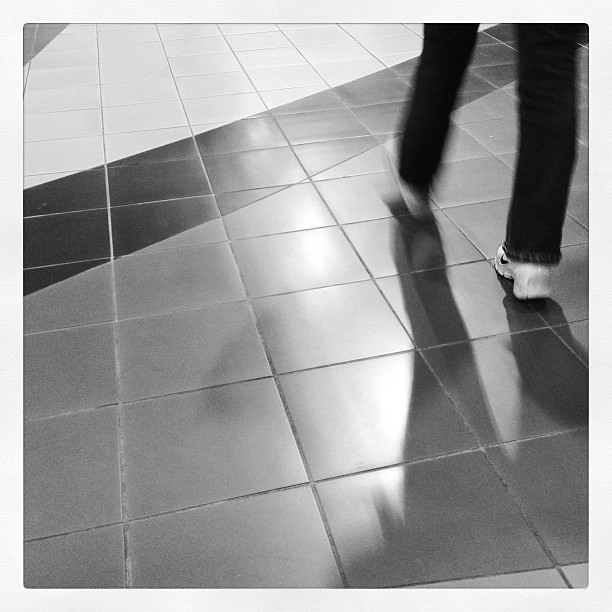 |
| © 2012 Hisakazu Watanabe, Flickr | CC-BY-SA | via Wylio |
Explanatory note: in PPPD, you have to retrain your brain to balance correctly. For whatever reason, the balance system becomes compromised and the brain begins to use the eyes to balance rather than the inner ears. This does not work well, because everything moves, so the eyes and brain are constantly trying to keep up. You have to retrain your brain through vestibular therapy to go back to balancing with the inner ears. And because the brain is working hard, it becomes extra sensitive to stimuli.
I found it hard to believe that brain fatigue was causing all this physical fatigue. But I'm here to tell you, it can! I had started a regimen of walking early on in my fight against PPPD just because I thought it might help me get in better shape and make me feel better. It did, and it actually helped my balance as a side benefit. But a couple of months ago, I finally decided to accept the brain fatigue theory and started thinking of my brain as damaged. When I researched recovering from brain trauma, two things came up over and over - exercise and meditation. I decided to focus on those two things and I have had excellent results.
I worked my way up to walking 30 minutes a day. Sometimes I walk outside, sometimes in the mall and sometimes just inside my apartment. I am now working on increasing my speed. Now, here is my inexpert, non-medical, understanding of how it helps. We know that exercise is good for the brain and helps it regenerate itself. That's why they say exercise is the best way to prevent dementia. I know that exercise strengthens your heart. I figure that as my heart gets stronger, it helps improve blood flow to my body and my brain. That helps feed oxygen to my cells, helping me to heal. And as my brain gets stronger and more healthy, I figure it can work more efficiently, helping diminish the fatigue. And it is working. I can finally see progress!
The other exercise I do is Tai Chi. I do the 24 form I am learning from a DVD. Tai Chi is known to improve balance and increase energy. And I love it because it's calming and beautiful. It is also improving my flexibility and stamina.
In my next post, the other part of the magic formula - meditation.


Exercise has so many benefits! I am so glad that you are doing better! :-)
ReplyDeleteThanks, Frances! I'm a convert. :-)
DeleteHi Frances I found this so encouraging and was doing really well but my rehabilitation therapist stopped me due to the risk. I'm now doing yoga moves at home. I really crave physically movement I used to run if not spamodically. But 4 months ago at the start of the visual vertigo and then 3Pd I walked. I find positive conversations helpful, and ways to distract myself whilst healing. Painting and drawing are things I never tried but suddenly I'm having a go as they really slow my brain. I really hope you and Gail recover soon take care
Delete